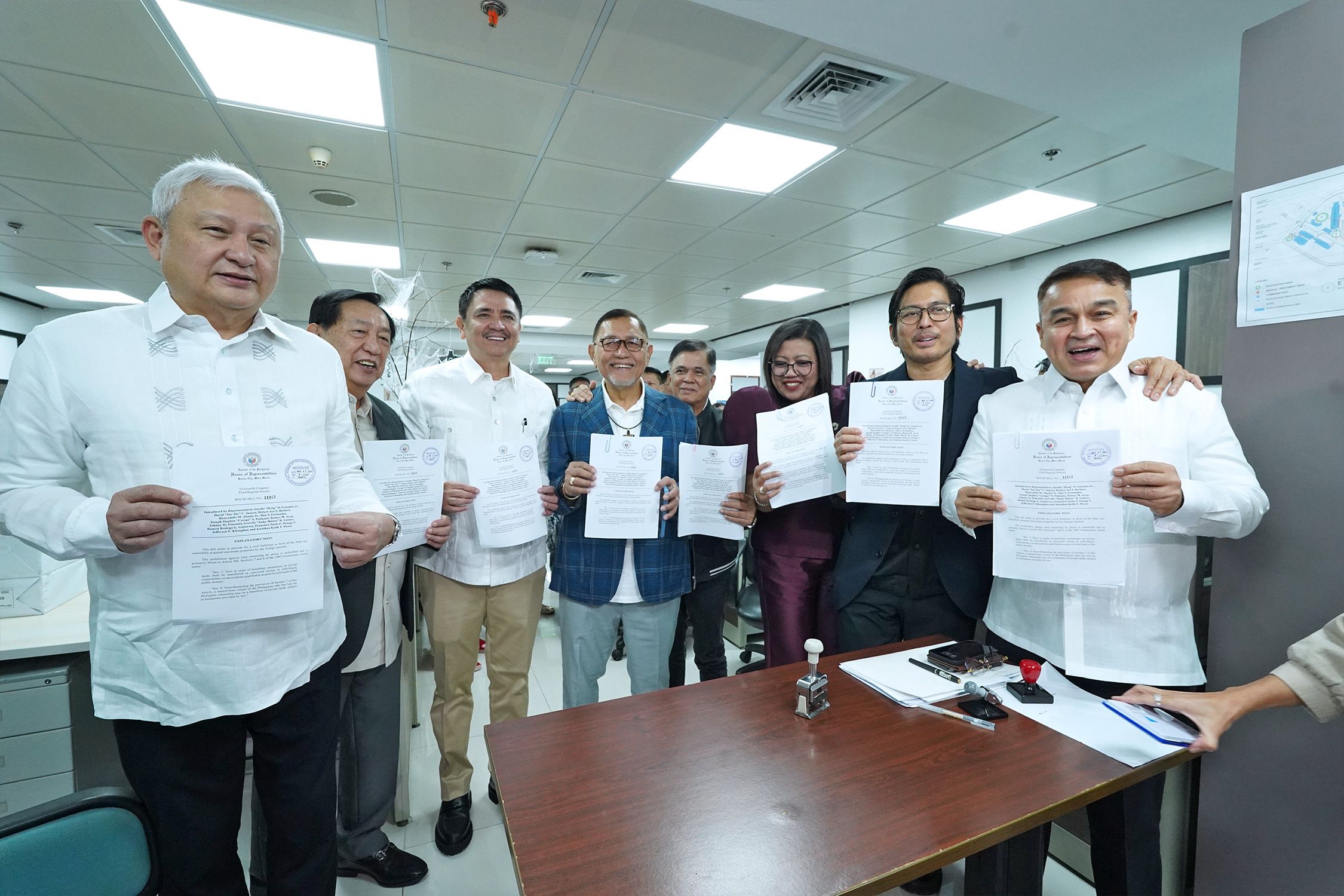House quad-comm leaders file bill seeking forfeiture of illegally acquired, foreign-owned properties
At A Glance
- The leaders of the House quad-committee (quad-comm) filed on Thursday, Nov. 7, a bill that seeks to enable the government to seize real estate illegally acquired by foreign nationals, particularly those linked to illegal Philippine Offshore Gaming Operators (POGOs).
 House quad-committee chairpersons, members file House Bill (HB) No. 11043 (PPAB)
House quad-committee chairpersons, members file House Bill (HB) No. 11043 (PPAB)
The leaders of the House quad-committee (quad-comm) filed on Thursday, Nov. 7, a bill that seeks to enable the government to seize real estate illegally acquired by foreign nationals, particularly those linked to illegal Philippine Offshore Gaming Operators (POGOs).
House Bill (HB) No. 11043, also known as the proposed Civil Forfeiture Act, is a direct result of the quad-comm’s ongoing probe into alleged criminal activities linked to POGOs, such as illegal drugs and human trafficking.
The bill was introduced by the mega panel’s chairpersons Reps. Robert Ace Barbers (Surigao del Norte 2nd district), Dan Fernandez (Santa Rosa City lone district), Bienvenido “Benny” Abante Jr. (Manila 6th district), and Joseph Stephen Paduano (Abang Lingkod Party-list), as well as Senior Deputy Speaker Aurelio “Dong” Gonzales Jr. and Deputy Speaker David “Jay-jay” Suarez.
Based on the explanatory note, the bill aims to reinforce the constitutional ban on foreign land ownership, which was earlier established in the 1935 Constitution.
The proposed measure specifically targets individuals who circumvent constitutional restrictions using falsified documents, enabling the civil forfeiture of such properties.
“The continued violation to the provisions of our Constitution on alien land ownership cannot be allowed to continue,” it said.
Under Article XII, Sections 7 and 8 of the 1987 Constitution, private land ownership in the country is restricted to Filipinos or corporations with at least 60 percent Filipino ownership.
As stated in the bill, many of these violators are connected to POGOs—which President Marcos previously banned over its association with criminality, among other concerns.
“Thousands of aliens have been flocking to the Philippines to establish [POGOs] which has turned out to be closely linked to criminal activities, such as human trafficking and illegal drugs,” it said.
According to bill’s authors, this issue has escalated in recent years and evidently peaked during the rise of these gambling hubs under the term of former president Rodrigo Duterte.
Based on findings by the quad-comm, some foreign nationals have secured fake birth certificates, passports, and other official documents, allowing them to purchase land illegally. Investigations also revealed that these are coursed through dummy corporations and corrupt practices.
Under HB No. 11043, any land transferred or conveyed to an unqualified foreign national would be deemed null and void.
To stressed this point even further, the measure assumes that any real estate acquired by a foreign national is unlawfully acquired unless proven otherwise.
It likewise includes provisions to ensure forfeited properties are repurposed for the public good.
Specifically, if the land is agricultural, it would be distributed to eligible farmers under the Department of Agrarian Reform (DAR). Non-agricultural land, on the other hand, would be allocated for public services—such as schools and hospitals—or transferred to local governments for social service use.
Furthermore, the proposed Civil Forfeiture Act mandates the Office of the Solicitor General (OSG), with support from the Department of Justice (DOJ), to initiate civil forfeiture proceedings.
Urgency of the bill
The authors are urging their colleagues in Congress to prioritize the bill’s swift passage, noting the need to address the rampant violations of land ownership laws.
“Moving forward, it is then imperative to never let such activities continue in the Philippines,” the lawmakers said.
“Thus, by reiterating existing policies against foreign land ownership, establishing the necessary framework for better enforcement, and allocating any forfeited real property for public use, we can curb corrupt practices, if not eliminate them altogether,” they continued.
Last month, the leaders of the quad-comm also filed a bill to institutionalize a nationwide ban on POGOs to reinforce Marcos’ prior directive.